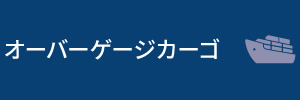HOME > ジャパトラブログ&ニュース
2020年04月08日
コラム/最適物流の科学 おわりに②
最適物流の科学
弊社社長の菅が、2017年12月に『最適物流の科学―舞台は3億6106万平方km。
海を駆け巡る「眠らない仕事」』という書籍を出版しました。
そこで、本ブログでも、その書籍から抜粋した内容を
毎週1話ずつ、ご紹介していきたいと思います。
最終回となる今回は、「おわりに」というテーマでお話しいたします。
↓
↓
——————————————————————————————————–
「おわりに②」
本書の締めくくりとして荷主の皆様に対して僭越ですが、ひと言ご提案を申し上げたいと思います。
私は、荷主の皆様から「できるだけコストを抑えたい」といったご要望を常日頃から受けております。貨物を発送する立場において、海上運賃を下げたいという気持ちは十分理解できます。
いずれの企業も、コスト削減が重要な課題となっていることは間違いないでしょう。弊社も、船会社に対しては荷主の立場になりますので、海上運賃の仕入れに際して、毎日のように値下げ交渉を行なっております。
ただ一方で、マーケットレベルがあまりにも低下してしまった現状に対して、強い危機感も抱いております。値下げを求めながらも、これ以上船会社の経営を圧迫するようなことは避けたいとの思いがあるのです。実際のところ、荷主からのご要望に応じて、健全に会社を運営する商権維持のために仕方なく交渉を行なっているのが現状です。
本書で再三述べてきましたが、海上運賃は二〇一七年現在、適正なレベルを超えて安くなっています。
そうした中でも私たちは、毎年運賃が下がるものだという前提で値下げ交渉を繰り返し、原価低減を目指してきました。結果として、これが海運業界の不安定化を招き、私たちユーザーにとって大きな不利益として返ってきているのです。
船会社はかつての半数近くになるまでに淘汰されました。経営の効率化を目指して再編が行なわれてきたにもかかわらず、ほとんどの船会社は今なお巨額な赤字を抱えながら運航しています。
実際に、日本の運賃レベルは、中国・アジアのマーケットに比べて、安値でしかも固定化されてしまっているので、スペースを割り当てられない傾向にあります。さらに、船そのものを日本に寄港することやサービスを中止するケースが増えています。経営を圧迫するほどの赤字を抱えている船会社にとって、日本でのサービスを維持することすらできなくなってきているのです。
そうした現状から考えると、海上運賃はもうすでに底値を割っているといっても間違いではないでしょう。限界を超えてしまっている中で、これ以上値下げ交渉をしても、実質的に荷主側にリターンは見込めません。そろそろ、この流れは止める時期に来ているではないでしょうか。
荷主の皆様の中には、製造コストの数%に満たない一コンテナ数百ドルというレベルの運賃交渉を毎年続けられているところもあります。そこで値下げが実現しても、実質的なリターンはそれほど大きくないでしょう。そうした本業以外のコストセーブに使っている労力・経営資源を、本来の業務に投入し、より良い製品を研究・開発・販売していく方が、むしろ利益に繋がるのではないでしょうか(日本企業の製品は高付加価値をつけることができるので、運賃負担力は比較的高いはずと、個人的には思っています)。
第二章で述べたように、物流など本業以外の業務をアウトソーシング化することは、現在のビジネスのトレンドでもあります。荷主企業が本来の業務に集中することは、結果として自社の利益に繋がると同時に、海運業界の再生にも繋がっていきます。業界の枠を超えて、広く荷主の皆様と上記のような問題意識を共有し、海運業界の維持発展を目指していきたいと考えています。
ところで、本書では海運業界の厳しい現状について繰り返し述べてきました。読者の皆さんの中には、この業界に対してマイナスのイメージを持たれた方がいるかもしれません。しかし、私はこのような状況がずっと続くとは思っていません。あくまでも今は過渡期であり、海運業界は今後必ず良い方向へ向かうものと確信しています。船会社のスペース供給過剰によって競争が激化する傾向は今なお続いていますが、マーケット自体は大きく発展していくことが予想されるからです。
世界中のメーカーが、安い労働賃金を求めて工場を国外へ移すことは、資本主義経済の中では必然的な流れです。これは今後も決して止まることはないでしょう。実際、グローバル化の進んだ現在、世界の貿易量は毎年増加傾向にあります。貿易量が増加すれば、海上輸送の需要も必然的に増えていくことは明らかです。
第一章で述べたとおり、遥か昔から、地球の約七割は海に覆われています。広大な海を、人や物を乗せて行き来し、世界と世界を繫いできた海運業界。そして、それは今でも、今後も変わりません。その広大な大海原というステージは、世界経済を動かすまさに大動脈です。ここで膨大な量の物を動かす海運業の重要性は、今後も変わることはないと断言できます。
ビジネスの世界でどんなにIT化が進んでも、実際に物を運ぶ産業がなくなることはありません。私は、フォワーダー(NVOCC)業を長年営んできた経験からも、海運業が世界経済、社会基盤を支える夢のある非常に重要な産業であると確信しています。海運業は、人類の発展に欠かせないといっても過言ではないでしょう。
海運業界が従来の活気を取り戻し、ひいては荷主に利益が還元される。本書が、そうした好循環を生み出すきっかけになることを願うばかりです。
最後に、常日頃サポートいただいている荷主の皆様、いつもご無理を聞いていただいている船会社の皆様、そしてこれまでにこの業界で出会ったすべての皆様に心より感謝を申し上げて、筆を置きたいと思います。最後まで読んでいただきありがとうございました。
As I have repeatedly mentioned in this book, maritime fares are cheaper beyond reasonable levels now (2017).
Under such circumstances, we repeated price cut negotiations on the premise that the fares will go down every year and we aimed at cost reduction. As a result, this leads to the instability of the shipping industry, producing a big disadvantage for us users.
Shipping companies have been culled by nearly half of them. Despite the reorganization aimed at increasing management efficiency, most shipping companies are still operating with huge deficits.
In fact, since the fare level in Japan has been unreasonably low and fixed at this very low level compared to the market in China and Asia, shipping companies tend to be unable to allocate space. In addition, more cases of cancellation of calling vessels to Japan and stopping services are on the increase. It is getting impossible for shipping companies with such pressing deficits to maintain services in Japan.
In this connection, It would not be erroneous to say that the ocean freight fare has already sunk lower than the bottom price. Beyond the limits, virtually no shippers can expect return even if we negotiate price cuts any more. The time of stopping this flow will be coming gradually.
Some shippers continue to negotiate freight rates on the level of a few hundred dollars per a container that is less than a few percents of manufacturing cost every year. So even if price cuts are realized through these negotiations, substantial returns will not be so big. l think that rather than they l put the labor and management resources used for cost saving other than for such main business in the original work and researching, developing and selling better products will lead to better profits. (Because Japanese products can give high added value, I personally think that the fare burden power must be relatively high.)
As I mentioned in Chapter 2, It is also a trend of current business to outsource non-core businesses such as logistics.
As a result, focusing on the original business of shipping companies will lead to their profits. Also it will lead to the revitalization of the shipping industry. I would like to share the consciousness of the above-mentioned problems of the shipping industry with many shippers beyond the industrial boundaries. In this way, I would like to aim to contribute to upholding and developing the shipping industry.
I have repeatedly stated the severe situation of the shipping industry in this book. There may be the people among the readers who may develop negative images against this industry. But I do not think that this trying situation will continue for a long time. We are now in a transition period. I am convinced that the shipping industry will surely move in a better direction. Although we are witnessing the tendency of intensifying competitions due to the shipping companies’ oversupply of spaces is still going on, the market itself is expected to develop to a tremendous degree.
It is inevitable in the capitalist economy that manufacturers move their factories outside of their countries seeking the supply of labor at cheaper wages from around the world. This is happening all over the world. It will never stop in the future. In fact, the world trade volume is increasing every year now that globalization is everywhere. If the trade volume increases, it is clear that the demand for maritime transport will inevitably increase.
As I wrote in Chapter 1, some seventy percent of the earth is covered by the ocean since the ancient time. This vast ocean is the stage for the shipping industry. By going back and forth from sea to seas and carrying people and goods from world to world, the shipping industry indeed serves as vital arteries for the world economy. The significance of the shipping industry will never dwindle. I can assert this.
No matter how IT may advance in the business world, the transportation Industry actually carrying things will never diminish. I have been in the forwarder (NVOCC) industry for many years. Based upon this experience, I am convinced that the shipping industry is a very important one that has a mission to support the world economy and social infrastructure. It may not be an overstatement to say that the shipping industry is full of dreams and indispensable for the development of humanity.
With all my heart, I hope that this book will serve as an impetus to create a great circle by causing the shipping industry to regain its original vitality and the shippers to prosper by gaining more profits. The shipping industry regains, the profit is reduced to the shipper eventually. I just hope that this book will give rise to such a virtuous circle.
Finally, to all the shippers who always support me, to everyone at shipping companies who always listen to my excessive requests, and to everyone I have met in this industry thus far, I would like to thank you all from the bottom of my heart. With this said, I will lay down my pen. Thank you very much for reading till the end of this book.
——————————————————————————————————–
ご興味を持っていただけた方、続きを一気にご覧になられたい方は、ぜひアマゾンでお求めください♪
最適物流の科学――舞台は3億6106万平方km。海を駆け巡る「眠らない仕事」
https://www.amazon.co.jp/dp/4478084297/
北米向けコンテナ海上輸送(FCL)のエキスパート!詳しくはこちらから。
工作機械・大型貨物・重量物などのフラットラックコンテナ、オープントップコンテナ海上輸送ならおまかせ!詳しくはこちらから。
コンテナのサイズ表はこちらから。
投稿者
ジャパントラスト株式会社
- ブログ (424)
- コラム/最適物流の科学 (52)
- ニュース (128)
- 2024年4月 (3)
- 2024年3月 (6)
- 2024年2月 (3)
- 2024年1月 (3)
- 2023年12月 (5)
- 2023年11月 (4)
- 2023年10月 (3)
- 2023年9月 (4)
- 2023年8月 (4)
- 2023年7月 (3)
- 2023年6月 (3)
- 2023年5月 (4)
- 2023年4月 (4)
- 2023年3月 (4)
- 2023年2月 (4)
- 2023年1月 (3)
- 2022年12月 (3)
- 2022年11月 (3)
- 2022年10月 (4)
- 2022年9月 (3)
- 2022年8月 (4)
- 2022年7月 (9)
- 2022年6月 (6)
- 2022年5月 (8)
- 2022年4月 (6)
- 2022年3月 (7)
- 2022年2月 (5)
- 2022年1月 (6)
- 2021年12月 (3)
- 2021年11月 (8)
- 2021年10月 (5)
- 2021年9月 (4)
- 2021年8月 (7)
- 2021年7月 (4)
- 2021年6月 (4)
- 2021年5月 (6)
- 2021年4月 (3)
- 2021年3月 (5)
- 2021年2月 (2)
- 2021年1月 (6)
- 2020年12月 (4)
- 2020年11月 (3)
- 2020年10月 (3)
- 2020年9月 (6)
- 2020年8月 (1)
- 2020年7月 (2)
- 2020年6月 (3)
- 2020年5月 (4)
- 2020年4月 (6)
- 2020年3月 (5)
- 2020年2月 (6)
- 2020年1月 (5)
- 2019年12月 (5)
- 2019年11月 (4)
- 2019年10月 (7)
- 2019年9月 (6)
- 2019年8月 (3)
- 2019年7月 (3)
- 2019年6月 (2)
- 2019年5月 (6)
- 2019年4月 (7)
- 2019年3月 (5)
- 2019年2月 (7)
- 2019年1月 (3)
- 2018年12月 (2)
- 2018年11月 (2)
- 2018年10月 (1)
- 2018年9月 (1)
- 2018年8月 (3)
- 2018年7月 (2)
- 2018年6月 (4)
- 2018年5月 (1)
- 2018年4月 (3)
- 2018年3月 (3)
- 2018年2月 (6)
- 2018年1月 (1)
- 2017年12月 (1)
- 2017年11月 (6)
- 2017年10月 (2)
- 2017年9月 (4)
- 2017年8月 (4)
- 2017年7月 (1)
- 2017年6月 (5)
- 2017年5月 (3)
- 2017年4月 (5)
- 2017年3月 (1)
- 2017年2月 (3)
- 2017年1月 (7)
- 2016年12月 (4)
- 2016年11月 (4)
- 2016年10月 (7)
- 2016年9月 (7)
- 2016年8月 (7)
- 2016年7月 (7)
- 2016年6月 (6)
- 2016年5月 (6)
- 2016年4月 (2)
- 2016年3月 (6)
- 2016年2月 (11)
- 2016年1月 (6)
- 2015年12月 (5)
- 2015年11月 (5)
- 2015年10月 (5)
- 2015年9月 (8)
- 2015年8月 (8)
- 2015年7月 (8)
- 2015年6月 (9)
- 2015年5月 (3)
- 2015年4月 (3)
- 2015年3月 (8)
- 2015年2月 (6)
- 2015年1月 (2)
- 2014年12月 (5)
- 2014年11月 (5)
- 2014年10月 (6)
- 2014年9月 (5)
- 2014年8月 (7)
- 2014年7月 (4)
- 2014年6月 (7)
- 2014年5月 (3)
- 2014年4月 (6)
- 2014年3月 (3)
- 2014年2月 (6)
- 2014年1月 (3)
- 2013年12月 (2)
- 2013年11月 (6)
- 2013年10月 (3)
- 2013年9月 (5)
- 2013年8月 (5)
- 2013年7月 (4)
- 2013年6月 (2)


